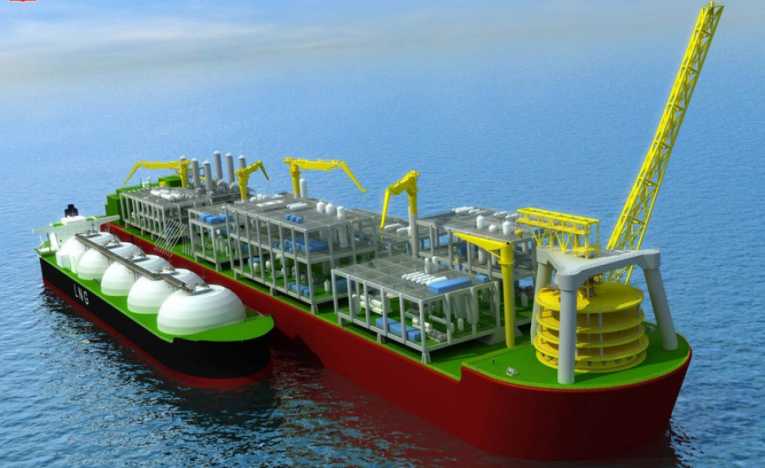The processing of traditional Liquefied Natural Gas (LNG) is expensive and environmentally unfriendly; normally requiring extensive pipelines, infrastructure and dredging. Shell Oil has developed some innovative technology that could change how we process LNG in the future.
Plans are underway to process LNG on a floating platform, which will likely be on the world's largest boat. The Australian Federal Government has just helped to make those plans a reality by granting Shell approval to implement their Prelude Project north of Broome on the North West coast of Western Australia.
The LNG industry is booming in Australia, with plans in pace to rival the world's largest producer of LNG, Qatar. Environment Minister Tony Burke has approved the Shell project with strict conditions which are focused on protecting the marine life.
"This is a large-scale project that is using world-first technology. We can't risk getting it wrong, so I have set very strict conditions to help ensure our precious marine environment will be protected," he said.
However, the Greens Party are not convinced and are concerned there will be impacts on the marine environment as well as gas emissions that will increase global warming. The project has also sparked concerns with environmentalists as well as some of the local Aborigines who are opposed to the planned development.
The vessel will be moored to the sea bed and extract the gas, processing it on board. It will be cooled on the vessel so that it is ready for shipping. Then the platform can be towed to a new gas field and anchored temporarily in place.
Shell's Prelude project vice president, Bruce Steenson says, "that means not only can we develop these smaller fields but it's a lower overall environmental impact". He continues, "it does mean that we can go to the more remote places to produce gas that we previously couldn't do”. The on board processing will mean that all offshore compression platforms, pipelines and the onshore infrastructure will be surplus to requirements.
Shell are still looking at design and engineering details for the new technology and plan to make a final decision in 2011. If they decide to go ahead the floating LNG processing plant will open for business in 2016.










